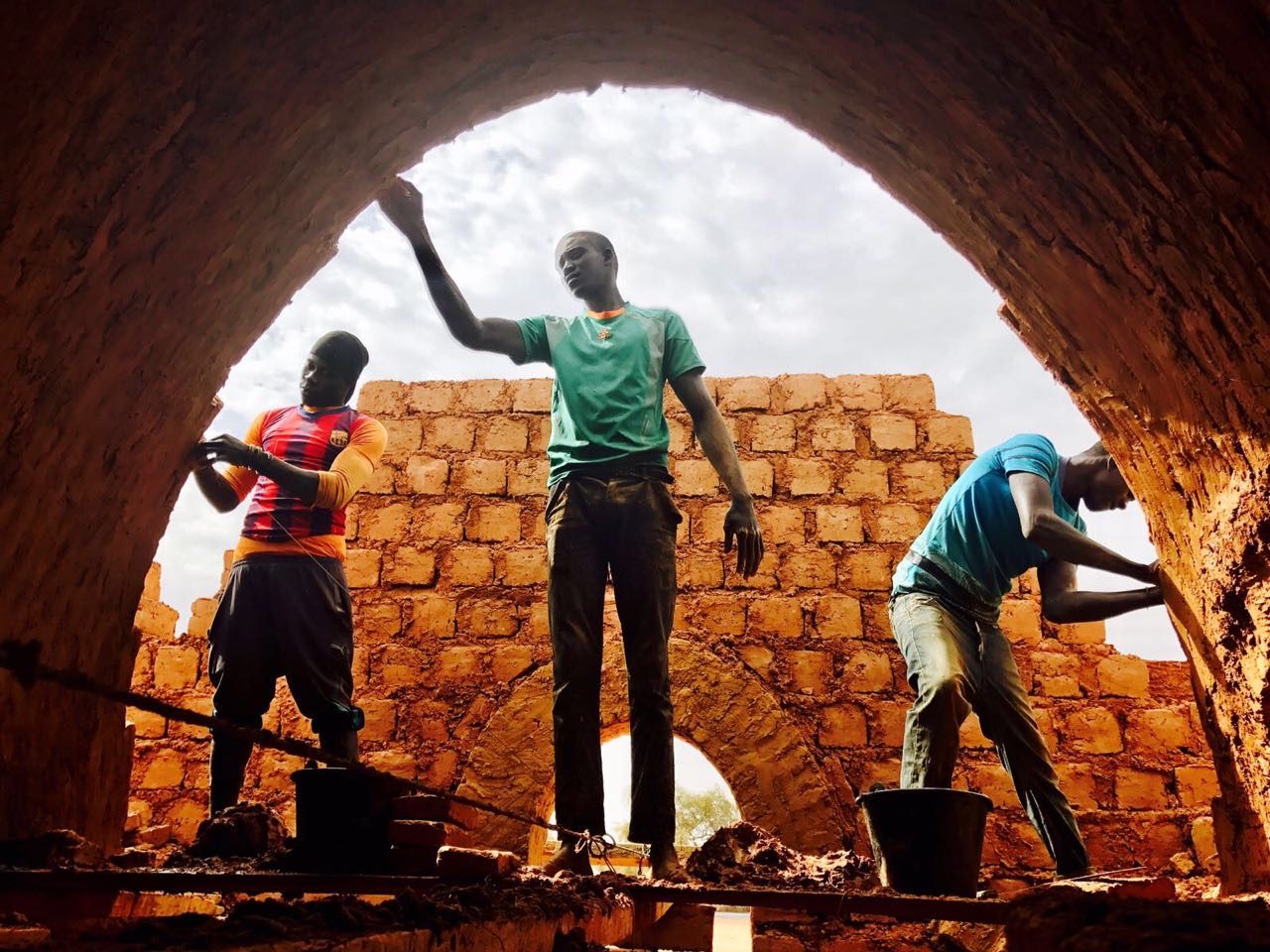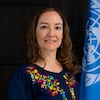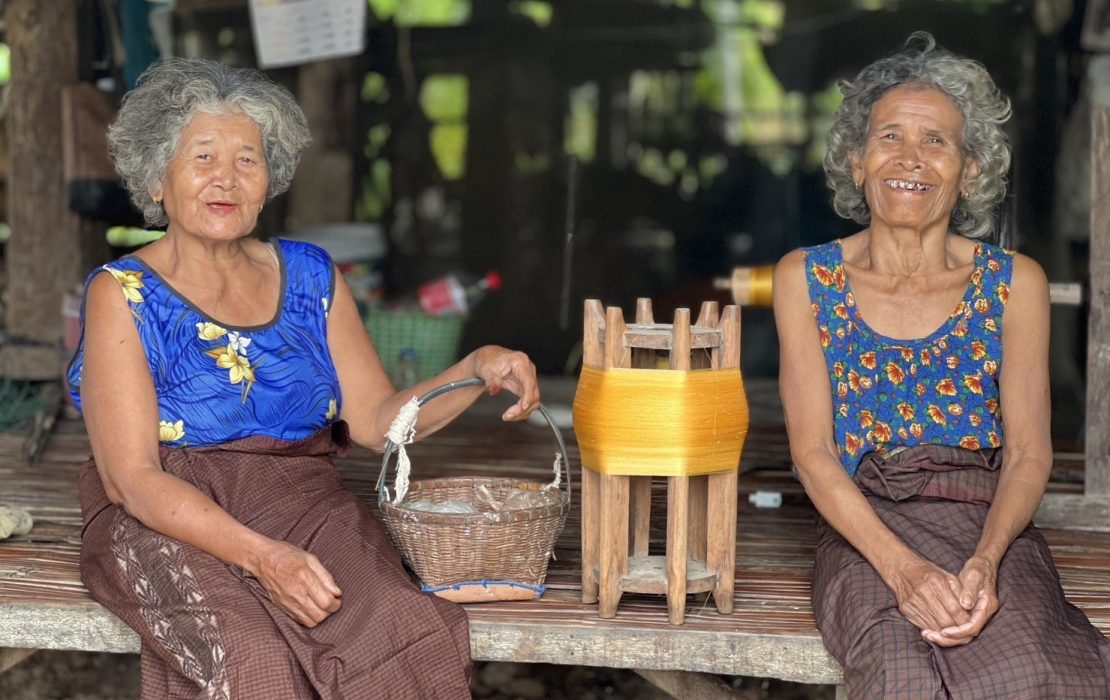
Photo: Nubian Vaults Association
As the impacts of climate change intensify, effective climate adaptation is needed more than ever to safeguard livelihoods, ensure food security and protect at-risk populations. Innovative partnerships that empower local solutions and build resilience from the ground up are increasingly essential.
One such partnership is between business schools and grassroots organizations implementing climate solutions in their communities. Business schools serve as neutral environments that are rich in talent and ideas and provide safe spaces to test new concepts, pilot solutions and engage in open, constructive dialogues. With sustained involvement from actors across the system, these academic spaces can evolve into trusted hubs for experimentation, learning and long-term relationship-building. At the same time, grassroots organizations understand the needs, strengths and limitations of their communities as well as the specific climate risks they face. Since they are often the first responders to climate impacts, they have on-the-ground knowledge and experience in dealing with unpredictability. As a result, they are uniquely positioned to develop context-specific, innovative solutions in dynamic and ever-changing environments.
This is why, in 2023, the UNDP-Adaptation Fund Climate Innovation Accelerator (UNDP-AFCIA) and the Global Resilience Partnership (GRP) launched a fellowship programme that connects business school postgraduate students with grassroots organizations around the world to facilitate the exchange of expertise and help scale climate adaptation solutions.
Over the past three years, a total of 70 students have worked closely with the 44 organizations supported by UNDP-AFCIA. For periods of three to six months, they brought their expertise in business management, financial planning and market research to help refine local initiatives and sustain their business models while adhering to the principles of locally led adaptation. In return, the grassroots organizations offered knowledge about local contexts and innovative solutions, facilitating an exchange that can help close the gap between climate finance and the projects on the ground that need it most.
Overall, this collaboration was designed to bridge academic knowledge with practical application. Here are the three main benefits we saw emerging from this programme:
- Value for the organizations. The organizations that UNDP-AFCIA works with have extensive experience designing climate adaptation solutions and local systems. However, scaling these solutions usually requires external funding, often from the private sector. Many organizations face challenges to attracting private finance due to gaps in technical language, different ways of working and a misalignment of priorities. The fellowship programme helps address these challenges by uncovering barriers and exploring ways to align community-driven initiatives with investor priorities. By providing strategic support, practical tools, market entry strategies and innovative financial models, the students help local organizations translate their value in ways that resonate with investors and better positions them to attract private sector funders. For example, in Kenya, the Locally Formulated Dairy Goat Meal initiative led by World Neighbors partnered with business students from the University of Oxford and Yale University to co-develop a market analysis and business plan that helped refine its model, manage competition and strengthen its pitch to donors and traders. As a result, the initiative improved food security for over 1,500 households, 60 percent of which are led by women, boosted feed product sales by 75 percent and is projected to generate US$300,000 in annual revenue by 2030.
- Value for the students. Business schools equip students with advanced skills in leadership, strategy, finance, marketing and organizational management. Many of the students participating in the fellowship programme, who come from both the Global North and the Global South, already have experience working in developing countries. They are eager to help build a better world, while deepening their own learning. The fellowship offers these students a unique and hands-on experience to engage directly with locally led adaptation, providing valuable, real-world insights that go beyond the classroom. As they progress into leadership roles, this practical experience not only sharpens their skills but also strengthens their professional profiles. Today’s employers are increasingly looking for skilled graduates who understand the complexity of development financing and who are attuned to critical challenges such as climate change, poverty, inequality and gender-based discrimination. Students who graduate from business schools with both a top-tier academic background and hands-on experience are exceptionally well positioned to meet that demand. During the fellowship, Chinese fellow Di Wu, from the University of Oxford, worked with the Nubian Vault Association in West Africa, a coastal village project in Indonesia and a silk cultivation initiative in Thailand. Through these collaborations, she was involved in developing a carbon credit marketing strategy, designing revenue-based payment mechanisms and training local teams in financial analysis. As a result, she strengthened her skills and deepened her understanding of gender equity, climate finance and the value of tailoring financial tools to local contexts.
- Value for the system. The long-term aim of this programme is clear: to influence and eventually change the system. Collective experience in bridging development finance and private sector finance has shown how important it is to have aligned goals and shared perspectives between funders and implementers. The system benefits when managers, directors and funders have experienced firsthand not only the urgent challenges in the Global South, but also the agility, resilience and innovative skillsets embedded in successful adaptation projects implemented by grassroots organizations in developing countries. Ultimately, practical understanding can help unlock greater capital flows towards local adaptation solutions, at more accessible rates, if experienced decision-makers are part of the boardroom. For example, Srishti Singh is an Indian fellow from the Yale School of Environment who has supported organizations in Brazil, India and the Philippines through this programme. Now she works at a leading financial institution, bringing her firsthand experience with climate adaptation to her role. Srishti’s understanding of the complexities faced by local initiatives, combined with insights into adaptive governance and innovative financing models, positions her uniquely to influence investment decisions from within the financial system, helping to align capital flows with sustainable, locally led climate solutions.
Ultimately, the fellowship programme is more than an academic exercise. It is a catalyst for systemic change. By creating spaces where grassroots organizations, academic institutions and the private sector can collaborate, this programme is helping connect funders with implementers, bringing climate finance to scale adaptation solutions that might otherwise remain small and underfunded. It also strengthens the pipeline of future leaders who not only understand business concepts but also grasp the complex realities and the often overlooked local skillsets of grassroots climate champions, who are often the best teachers. As these students and future leaders carry their experiences forward, they become ambassadors for sustainable, inclusive growth and champions of a future where adaptation is not an afterthought, but an integral part of how we build resilient societies.
*
The UNDP-AFCIA programme is one of the funding windows anchored under the Adaptation Innovation Marketplace (AIM), a multi-stakeholder strategic platform that promotes scaled-up adaptation at the local level.
Supported by financial contributions from the Adaptation Fund and the European Union, the UNDP-AFCIA programme has awarded 44 micro and small grants to locally led organizations across 33 countries worldwide, accelerating their innovative solutions to build resilience in the most vulnerable communities. So far, the programme has benefited over 2.6 million people globally.
This story has been co-created with support from the Global Resilience Partnership (GRP).
The universities participating in the fellowship programme are part of the Global Network of Advanced Management (GNAM), and include the Yale’s School of Management (United States), Oxford’s Said Business School (United Kingdom), ESMT Berlin (Germany), the University of Cape Town’s Graduate School of Business (South Africa), IE Business School (Spain), EGADE Business School (Mexico), FGV Escola de Administraçao de Empresas de São Paulo (Brazil) and the Asian Institute of Management (Philippines). Universities in this network include some of the best ranked both in the Global North and the Global South.



